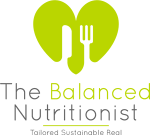If you’ve been following me even for a short while, you should know I am not a ‘gluten is evil’ kind of nutritionist. However, early diagnosis of coeliac disease and recognising when someone may have a genuine issue with gluten is important for avoiding serious, long-term health consequences.
Here are 10 important considerations concerning coeliac and gluten generally:
- If you have a first degree relative with coeliac, you have a much higher chance of having the condition yourself. You should always mention family history to your GP or any health professional, as it may help their ‘differential diagnosis’ (see note below). We always take a comprehensive family history during our initial fact-finding appointment.
- Coeliac disease seriously compromises your absorption of nutrients. Usually, one of the first issues to show up in pathology results is iron deficiency. Ongoing iron deficiency, despite supplementation and a balanced diet, in combination with other signs and symptoms may indicate the need for coeliac testing. A nutritionist can test for coeliac disease.
- Coeliac disease is not the same as being gluten intolerant. Please do not self diagnose yourself as coeliac, but not bother getting tested. You do need to know. And, if you are coeliac, you need to share this information with blood relatives because it’s important to know you have a genetic predisposition to certain conditions. See point 1 again.
- Coeliac is an autoimmune condition. Knowing you have an autoimmune condition, I believe, is important. Not only do you need to avoid gluten forever, but you do also really need to look after yourself. Look at your lifestyle, try to minimise stress and eat well to avoid ongoing nutrient deficiencies, as these are physically taxing to the body. Why? Because having one autoimmune condition increases your chance of others developing. It’s not a life sentence – but an awareness of your overall, holistic health is critical. In an ideal world, we should all think like this, but it’s even more important for those with coeliac and/or other autoimmune conditions.
- Newly diagnosed coeliacs benefit from nutritional counselling. There are many traps for new coeliacs – many foods contain trace amounts of gluten and cross-contamination can also be an issue. Being a coeliac = absolutely. No. Gluten. Ever. The end. (I’m sorry, ut you will thank me in the long run.)
- Gut work and supplements are often important initially in coeliacs, to correct deficiencies and assist with the healing of the ‘villi’. Villi are the finger-like projections of the small intestine that are responsible for the absorption of nutrients and are severely damaged in newly diagnosed coeliacs.
- If a coeliac is left undiagnosed for a long time, there can be all kinds of consequences… poor bone density, absence of periods, exhaustion and depression, infertility, dental issues. If you have any of these issues, it’s time to speak to a health professional even if it’s not related to gluten.
- Being gluten free has become somewhat trendy these days. Coeliac isn’t trendy. It is serious. In all honesty, I don’t really think that many people have serious issues with gluten – more have serious issues with wheat than gluten (which are different things – see point 9). However, coeliac disease is a serious issue. And it’s also seriously missed. Too often.
- Wheat and gluten are not the same. Gluten is in wheat, but gluten is also in other grains, including rye, oats and barley. Some people may be fine with rye, oats and barley, but not wheat. Others may be fine with all types. Please don’t judge your tolerance for gluten on how you felt after eating a Big Mac or even a cheap, white loaf of bread from the supermarket.
- I do believe that gluten intolerance is a thing. Research suggests that people who carry a gene for coeliac may be more sensitive to gluten without actually being coeliac. Some cases of IBS (irritable bowel syndrome) do improve dramatically with gluten elimination. However, we are not all gluten intolerance. And you do not have to avoid gluten in order to be healthy.
*Differential Diagnosis: If someone presents with fatigue for example in the clinic, there’s a gazillion reasons why they might be feeling exhausted. They could have a virus, they could have blood sugar imbalances, maybe their thyroid is out, or perhaps it’s as simple as them not sleeping. The more facts we have about a person’s health history and the more details they can provide about their symptoms, their diet and their lifestyle, the more certain we can be about what is going on that might be making them feel so rotten. This is the process of differential diagnosis – taking someone with symptoms and narrowing it down to what is most likely may be caused by.
If you suspect you have an issue with gluten, or perhaps you are an overwhelmed, newly diagnosed coeliac wanting some guidance, please book an appointment to see us.

